
News from Nashville
Legislation seeks reports on illegal immigrants who commit crimes in Tennessee
Two bills that will strengthen the state’s standing to sue the federal government over the costs of illegal immigrants to Tennessee’s taxpayers are moving through the legislature. These bills would generate reports that detail the costs incurred by the state from illegal immigrants who commit criminal offenses in Tennessee.
Senate Bill 757 would require a local law enforcement agency to verify a detainee’s citizenship. If found to be not lawfully present in the United States, then the jail must report that illegal immigrant to the Department of Safety and Homeland Security.
Senate Bill 2158 would require the District Attorneys General Conference to collect and compile data on the cost incurred by the state as a direct result of known illegal immigrants charged or convicted of a criminal offense. The report will be submitted to the Governor and both speakers of the General Assembly.
Senate Bill 757 advances to the Senate floor for final approval, and Senate Bill 2158 advances to the Senate Finance Committee.
Enforcing sanctuary city ban
Last Monday, the Senate passed legislation to ensure that no city in Tennessee is harboring illegal immigrants. Senate Bill 2576 will require the Sheriff of every county to fully comply with the Department of Homeland Security (DHS). Legislation was passed in 2018 that authorized sheriffs to ban sanctuary cities in Tennessee. This bill ensures that the prohibition of sanctuary cities is enforced.
Clarifying immigration status requirements for employment
Another bill passed last week addresses the employment of illegal immigrants. The legislation clarifies acceptable hiring practices for legal and illegal immigrants. Senate Bill 1866 would specify that when an employer considers hiring an immigrant who might be in the process of getting their documentation to work in the country legally, the employer must consider the immigrant’s legal status at the time he or she is seeking employment. This legislation passed the Senate Judiciary Committee on Wednesday and now awaits passage on the Senate floor.
Legislation aims to increase punishment for illegal immigrants who commit violent crimes
Legislation that would sentence illegal immigrants convicted of violent crimes in Tennessee to life in prison without parole advanced out of the Senate Judiciary Committee.
Senate Bill 2770 would allow a judge to sentence an illegal immigrant to life without parole if convicted of a violent crime or if a deadly weapon was involved in the offense. The bill also authorizes the same enhancement for adults convicted of a violent crime on school property.
Under the bill, the arrest of an illegal immigrant and all subsequent convictions must also be reported to the Tennessee Department of Safety and Homeland Security. The data will be used to help understand the impact on Tennessee.
The Department of Homeland Security has reported more than 6 million encounters along the southern border since 2021. An additional 1.7 million individuals entered the country illegally and successfully evaded authorities.

Death penalty could be option for convicted child rapists under new bill
The Senate Judiciary Committee advanced legislation to increase the penalty for child rapists in Tennessee. Senate Bill 1834 would expand the death penalty to defendants convicted of child rape.
The legislation will strengthen existing state law by increasing the penalty for rape or aggravated rape of a child to death, life in prison without the possibility of parole, or life in prison. Current law classifies the offense as a Class A felony punishable as either a Range III offense, which carries a sentence of 40-60 years in prison or a Range II offense of 25-40 years in prison.
The proposal builds on the General Assembly’s efforts in recent years to improve public safety, reduce recidivism rates, and hold criminals accountable through smart-on-crime justice reforms. The General Assembly in 2022 passed truth in sentencing laws that increased penalties for the most violent of crimes and now requires offenders to serve 85-100 percent of their sentences.
Legislation aims to level the playing field for college athletes to maximize NIL value
Legislation passed by the full Senate last week keeps Tennessee leading the nation in name, image and likeness (NIL) protections for college athletes. Senate Bill 709 updates the state’s current NIL law to provide more opportunities for student-athletes to capitalize on their talents.
The legislation establishes legal protections for current and prospective college athletes to maximize their Name, Image and Likeness (NIL) value.
The bill protects the ability of current and prospective athletes to assess their NIL value freely by performing “diligence.” This means that in the recruitment process, a prospective athlete can better explore their NIL value at different institutions and make more informed decisions about their financial future.
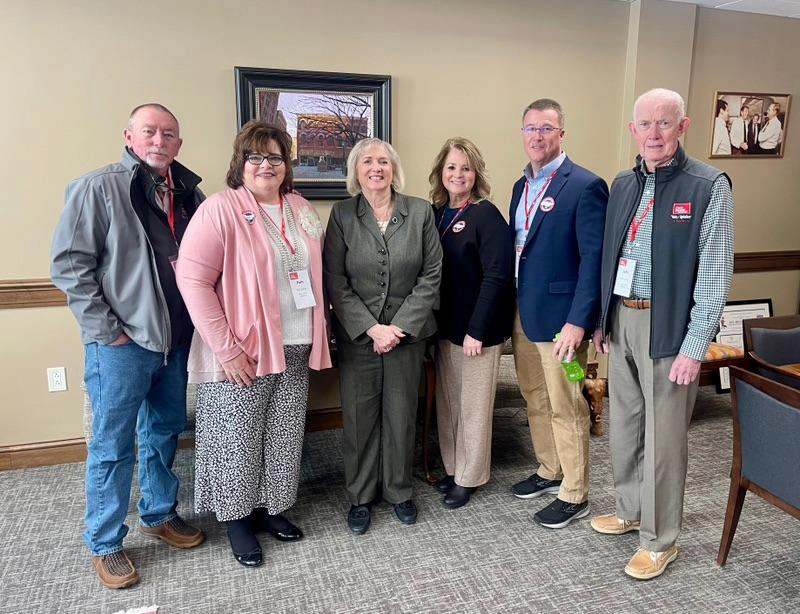
Creating a high-demand workforce grant program
The Senate Commerce and Labor Committee passed legislation that would bolster Tennessee’s high-demand skilled workforce and create more apparent opportunities for workers.
Senate Bill 1937 establishes a high-demand workforce readiness grant program for students pursuing careers in these fields with skills in high demand. The program will provide financial assistance to eligible students enrolled in approved institutions sanctioned by the Tennessee Higher Education Commission.
The High-Demand Workforce Readiness Board is tasked with annually identifying high-demand sectors within the state and reputable institutions offering training programs in these critical fields. The new grant program established under the legislation would complement the efforts of the board.
The bill now moves to the Senate Finance, Ways and Means Committees.
Legislation designates November as Christian Heritage Month
Last week, the Senate passed legislation to set aside a month to recognize the historical and cultural significance of Christianity in the state and country. Senate Bill 2306 designates November as Christian Heritage Month.
Members spoke about the important role of Christianity in making the United States a prosperous nation. George Washington’s farewell address was cited in which he said: “Of all the dispositions and habits which lead to political prosperity, religion and morality are indispensable supports.” This will join the many other days, weeks and months we recognize in Tennessee.

In brief…
Violation of bond conditions – Senate Bill 2564 Bill would make it a Class A misdemeanor for an individual who is out on bond to violate the conditions of their release. This change would allow law enforcement to arrest an individual who is suspected of violating the conditions of their release instead of having to wait for the district attorney’s office to file a motion and schedule a court hearing which could take weeks. This legislation passed out of the Senate Judiciary Committee and now awaits final passage on the Senate floor.
Pretrial monitoring – Another bill sponsored would strengthen Tennessee’s bail laws and improve public safety. Senate Bill 2566 would require defendants charged with a Class A, B, C or D felony to submit to pretrial monitoring if the magistrate issues conditions of release. Courts must also forfeit bail and may issue an arrest warrant if a defendant fails to comply with the conditions. The measure passed the Senate Judiciary Committee and now moves to the Senate Finance, Ways and Means Committee.
More tools to fight elder abuse – To help the state fight elder abuse, the Senate passed, Senate Bill 163. The legislation empowers District Attorneys to provide confidentiality for those who report information about abuse. Under the bill, those who come forward can still be interviewed, but their identity will be protected. This will help DAs go after abusers by encouraging citizens with knowledge of abuse to come forward.
Delinquent property tax payments – Senate Bill 2172 which aims to help citizens behind on paying property tax. The bill will set up a uniform system for the collection of delinquent property tax by allowing partial payments. The partial payments will help citizens cut down on the interest owed. The bill advanced out of the Senate State and Local Government Committee to the Senate floor for final approval.
Ensuring schools know students’ criminal histories – To ensure schools are aware of their students’ criminal histories, the Senate passed legislation to authorize schools to remind parents of their obligation to disclose to the school if their child is convicted of certain delinquent acts. Senate Bill 2365 also increases the penalty for parents or legal guardians who fail to do so from a Class C misdemeanor to Class B misdemeanor.
Accepting electronic insurance cards – Legislation is sponsored to help streamline doctor and hospital visits. Senate Bill 2363 would require hospitals and physicians to accept electronic insurance cards as valid proof of insurance. This legislation passed out of the Senate Commerce and Labor Committee on Wednesday and now awaits final passage on the Senate floor.
Penalizing violent conduct in judicial proceedings – Senate Bill 2221 creates a Class E Felony offense for a person who causes bodily injury to or offensive contact with someone who is part of a judicial proceeding. Offensive contact could include spitting, throwing, or otherwise transferring bodily fluids, bodily pathogens, or human waste onto a victim. The bill would apply to participants in a judicial proceeding including anyone employed as a judge, district attorney general, attorney for a party in a criminal or civil case, court employee, bailiff, courtroom security personnel, and other person who works in the building where a judicial proceeding takes place.
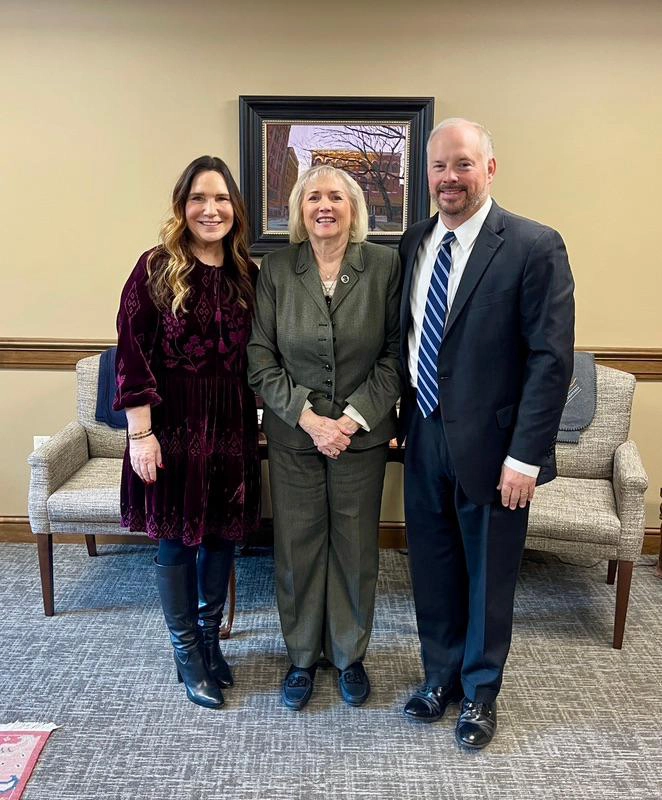
Increasing penalties for child endangerment – Tennessee lawmakers are actively working to prevent children, who are unable to protect themselves, from being knowingly endangered by an adult. Legislation sponsored would create a higher offense for parents or guardians who knowingly endanger their child. Senate Bill 2662 would increase the charge for anyone who acts negligently or engages in conduct that places an eight year old child or younger in danger from a Class D felony to a Class B felony. This legislation passed out of the Senate Judiciary Committee on Wednesday and now awaits passage on the Senate floor.
Increasing protections from bullying and cyberbullying – The Senate Judiciary Committee advanced Senate Bill 1887 protects students in Tennessee from bullying and cyberbullying. The bill would classify the crimes as forms of harassment and require an officer who has knowledge of bullying or cyberbullying to make a report of the incident and notify the parent or guardian when the victim is a minor. The bill advances to the Senate floor for final approval.
Prioritizing autopsies for children – Senate Bill 2929 will instruct the Department of Children’s Services (DCS) and county and chief medical examiners to create policies prioritizing the autopsies of children involved in active investigations by DCS. The bill pertains to issues uncovered by the Second Look Commission when trying to look at the most heinous deaths against children. The Commission looks at the autopsies to help investigate and close cases, and some of the autopsies have taken up to 3.5 years to be completed. Senate Bill 2929 will ensure that the cases are prioritized so they can be closed and resolved quicker.
Uniform Faithful Presidential Electors Act – Legislation to ensure the integrity of presidential electors advanced out of the Senate State and Local Government Committee. The Uniform Faithful Presidential Electors Act would require each elector or alternate to vote for the candidate for which they were elected or appointed to represent. If they refuse to do so, they will be replaced. The bill advances to the Senate floor for final approval.
Ensuring SROs at schools – Senate Bill 1715 would ensure that all schools have a school resource officer (SRO) on campus. Currently, some local boards of education have not entered into a memorandum of understanding with the local law enforcement agency, meaning that some schools do not have a SRO. This bill will allow the law enforcement agency to assign a law enforcement officer to serve as the SRO to a school.
More opportunities for physician assistants – Tennessee has many compacts with other states that allow certain workers to cross state lines with their licenses and practice in those states and in our state. Senate Bill 1727 would add physician assistants to these already existing compacts by enacting the Physician Assistant (PA) Licensure Compact. This bill passed out of the Senate on Thursday and now awaits passage in the House.
Providing more employment opportunities – Legislation aimed at increasing workforce participation, Senate Bill 1915 would enable individuals with specific criminal offenses on their record to secure employment opportunities. If passed, the bill would allow licensing authorities to evaluate candidates’ criminal histories on a case-by-case basis when determining approval or denial of certain occupational licenses. This legislation passed out of the Senate Commerce and Labor Committee and now awaits final passage on the Senate floor.



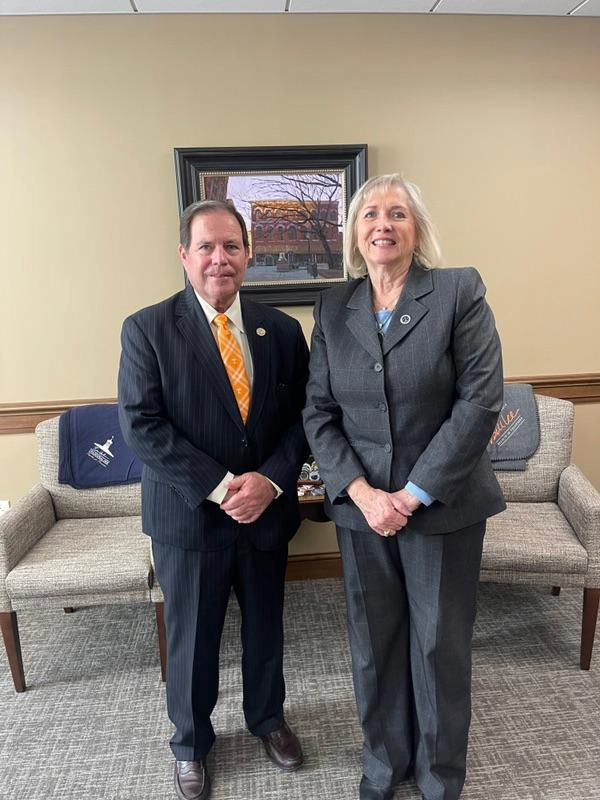

Legislation I’m Sponsoring
Ben Kredich Act aims to prevent impaired driving by those treated with Narcan
The Senate Judiciary Committee passed legislation to clarify that patients who have been treated for a drug overdose with Narcan could still be impaired and charged with driving under the influence, as drugs would still be present in their system. Senate Bill 2116, which I’m the sponsor, instructs first responders who administer an opioid antagonist such as Narcan to an individual experiencing a drug overdose may provide information on the risk of driving within a 24-hour period.
The legislation is named after Ben Kredich who tragically lost his life after being struck by a driver who fell asleep at the wheel after being administered Narcan in a hospital earlier that day. The driver was unaware of possible side effects of Narcan and that the drugs causing the overdose would remain in his system for at least 24 hours.
The education provided under the Ben Kredich Act will help curb accidental deaths and DUI offenses, hopefully preventing another situation like the one that happened to Ben.”
The bill now advances to the Senate Finance Committee.
Legislation would expand newborn safe haven program
A proposal to expand the availability of Safe Haven Baby Boxes for newborns in Tennessee advanced this week in the Senate. Senate Bill 1670 adds emergency communication centers and certain nursing homes that are staffed 24 hours a day to the list of approved locations where newborn safety devices may be located for the purpose of surrendering a newborn.
Since 2001, Tennessee’s Safe Haven law has allowed mothers in certain cases to surrender their newborn without fear of being prosecuted. The child must be no more than 14 days old, unharmed and left voluntarily. The General Assembly previously approved legislation in 2022 that expands the state’s safe haven law by allowing for the installation of Safe Haven Baby Boxes at police and fire stations in Tennessee.
Senate Bill 1670 passed the Senate floor unanimously on Thursday and now goes to the governor for his signature.
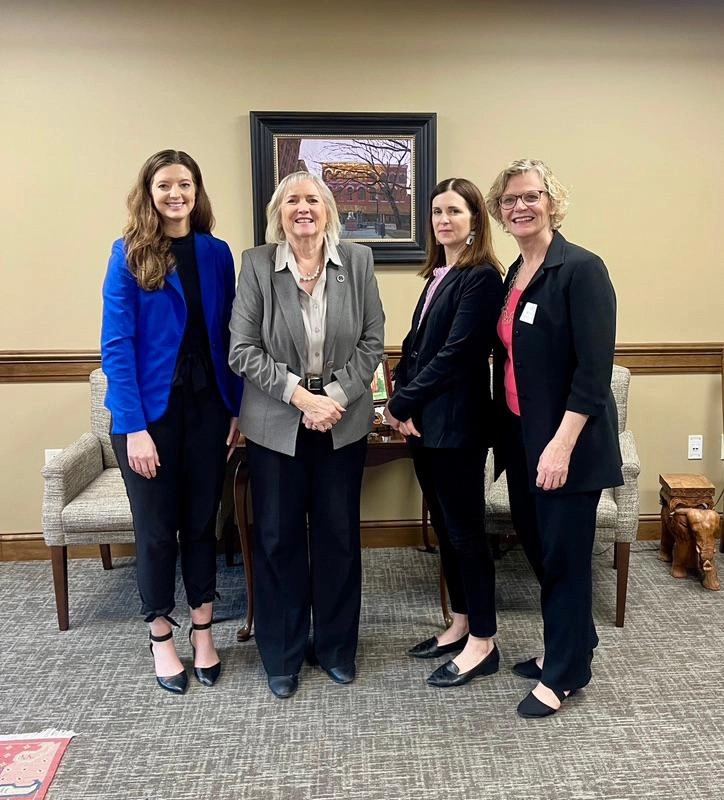


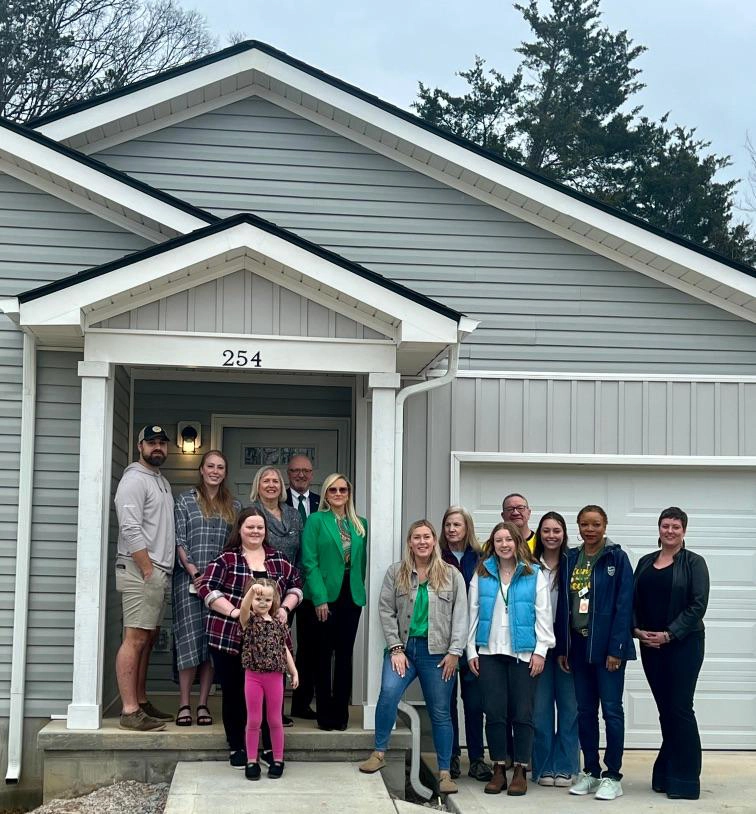

If our office can ever be of service to you or your family, please don’t hesitate to contact us. On the left is Carly Nelson, my Legislative Assistant. On the right is Debbie Gazzaway, our Research Analyst for the Transportation and Safety Committee. We can help with issues with a state department, information on legislation, setting up a tour of the Capitol or scheduling an appointment or speaking engagements.
For information on State Senators including phone numbers and email addresses, click Tennessee State Senators.
For House members, click Tennessee House Members
For all other information on the General Assembly including legislation, schedules and videos, click Tennessee General Assembly
As always thank you for continued support!
Sincerely,
Becky Massey
District 6 Senator
615-741-1648
sen.becky.massey@capitol.tn.gov
